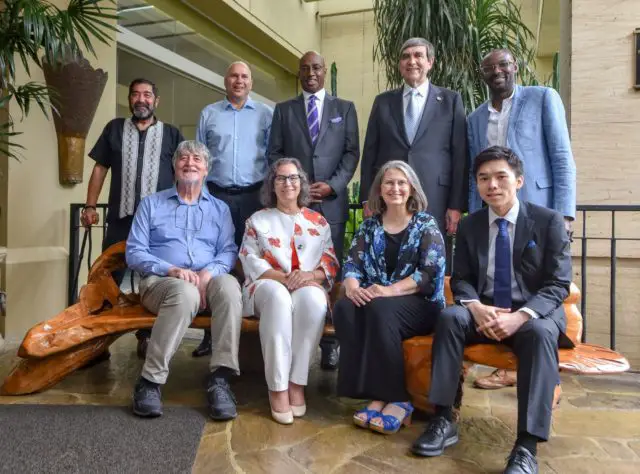The Internet Hall of Fame revealed the names of the new generation of members 2019. These are 11 pioneers and visionaries who have made outstanding contributions to the growth, reach and global security of the Internet, which will be honored in a special ceremony held last Friday in the Costa Rican capital.
Coming from all over the world, this year’s elected now join other luminaries in the Internet Hall of Fame, such as Tim Berners-Lee (creator of the World Wide Web), Al Gore, former vice president of the United States, Jimmy Wales (creator of Wikipedia), and the late Aaron Swartz (online activist, part of the team that created the RSS protocol), among many others, who like them have helped shape the Internet we enjoy today and expand their reach new regions and communities.

“Internet design has always allowed people to see a problem and get to work to solve it”, said Andrew Sullivan, president and CEO of the Internet Society. “This year’s new members have given us great gifts of their creative approaches to the problems they saw on the Internet. We can be inspired by them to face the next round of challenges”.
It is the first time that the awards will be held in Latin America since the beginning of the program in 2012. Costa Rica was selected to organize the event because of the strong example it has set when using a collaborative approach to Internet governance and systematic steps that have led to close the country’s digital divide. Some cities where the Internet Hall of Fame has been held are Geneva, Berlin, Hong Kong, and Los Angeles.
The honorees in 2019 are:
• Adiel Akplogan (Africa) promoted the development of the Internet in Togo and throughout Africa, and served as founding CEO of the Regional Internet Registry for Africa.
• José Soriano (Peru) was a leader in bringing the Internet to Peru and designed a replicable “public Internet” model.
• Michael Stanton (Brazil) was instrumental in bringing the Internet to Brazil, and continues to participate in the design and deployment of scalable optical networks in South America and around the world.
• Klaas Wierenga (The Netherlands) invented eduRoam, an international Wi-Fi roaming service for academic and research communities in more than 100 countries.
• Suguru Yamaguchi (Japan) was a pioneer in cybersecurity research and a world leader in its implementation. He founded the Asia-Pacific broadband Internet research and education network project via satellite.
• Kimberly Claffy (United States) was a pioneer in the field of Internet data collection, measurement and analysis.
• Douglas Comer (United States) wrote the first series of authorized textbooks that explain the scientific principles of Internet design and its communication protocols.
• Elise Gerich (United States) played a decisive role in the transition from NSFNET to the modern Internet and the functions of the Internet Assigned Numbers Authority of the US government administration to a multi-stakeholder community.
• Larry Irving (United States) was a driving force behind the identification of the digital divide in the US, what aroused worldwide interest in the subject.
• Dan Lynch (United States) promoted the adoption of TCP / IP protocols and played a key role in driving the Internet to a commercial network.
• Jean Armor Polly (United States) pioneered free internet access in public libraries.
The Internet Hall of Fame acknowledges people who have played an extraordinary role in the conceptualization, construction, and development of the global Internet.

